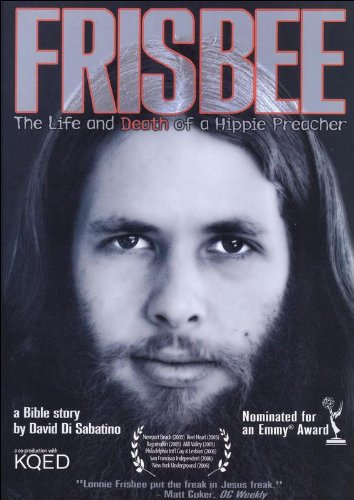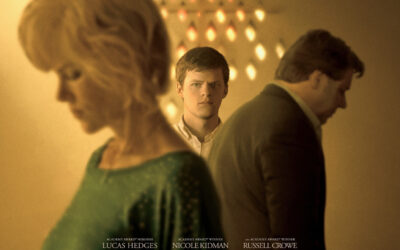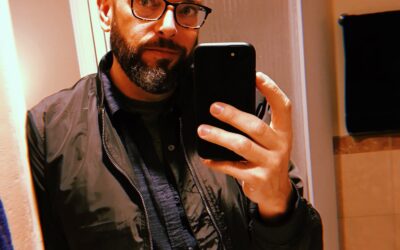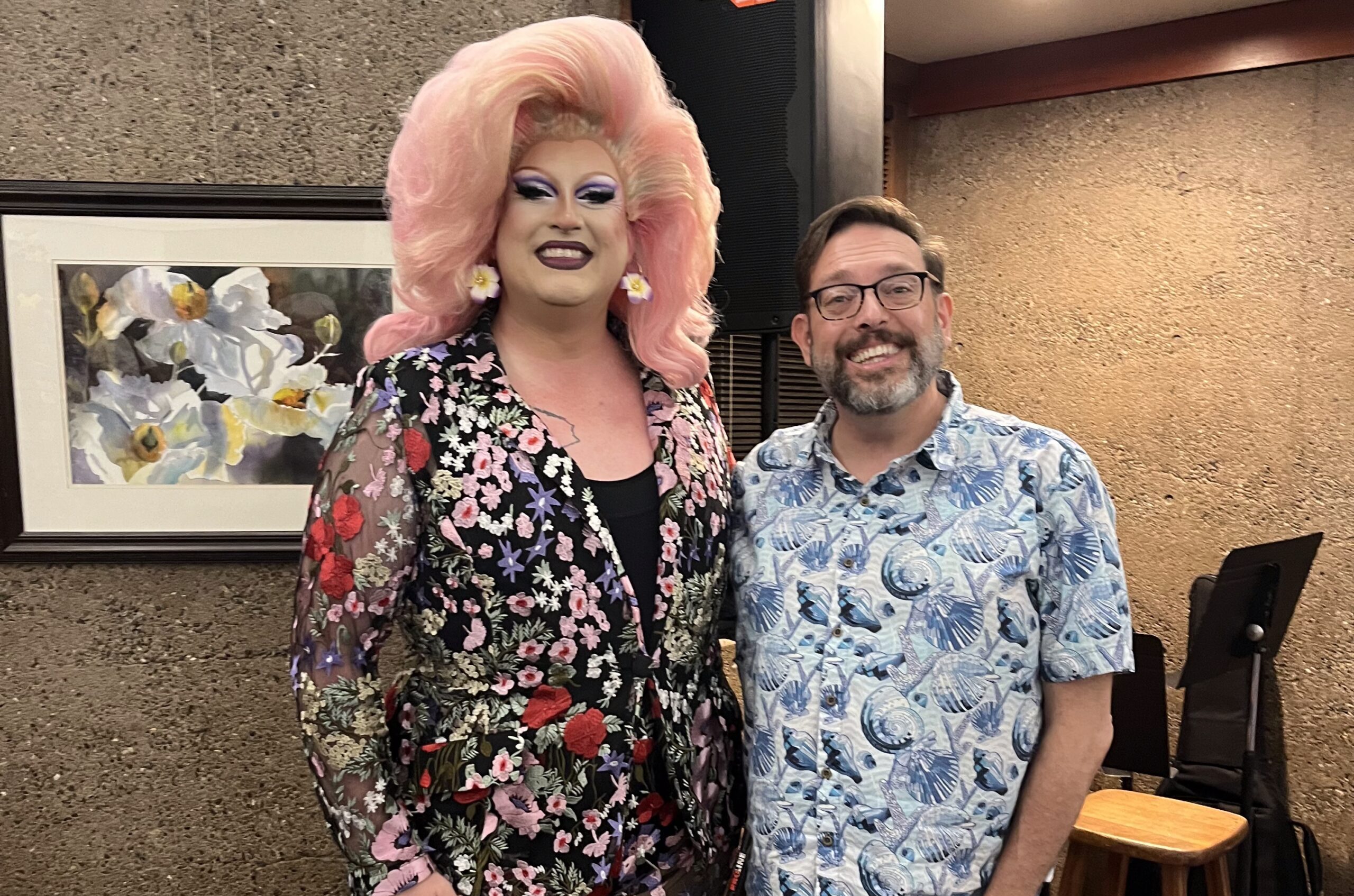
Alejandro and I watched the documentary Frisbee: The Life and Death of a Hippie Preacher (available to rent on Amazon Prime Video for $1.99) a few weeks ago, and I can’t stop thinking about it.
Friends, the simple fact of the matter is that the Calvary Chapel and Vineyard movements (and therefore, much of American charismatic evangelicalism) were founded on the signs and wonders of a clearly anointed, Spirit-filled-but-closeted gay man.
Chuck Smith and John Wimber were struggling pastors of small churches until Lonnie Frisbee and the Holy Spirit showed up in powerful ways. Both Smith and Wimber followed the promptings of the Spirit through Lonnie Frisbee into new understandings of scripture and theology, and millions have been impacted as a result. But apparently changing their view of human sexuality was a bridge too far.
When Lonnie’s sexuality was revealed, he was abandoned by his mentors and erased from the pages of these denomination’s histories. In fact, when Wimber wrote about his first experience with “a power encounter similar to the one described at Pentecost,” in his book Power Evangelism, he refers to Lonnie only as the “young man” whose preaching on Mother’s Day in 1980 launched his little church into full-on revival.
“A revival began that May, and by September we had baptized over seven hundred new converts. There may have been as many as seventeen hundred new coverts during a three-and-a-half-month period. I was an expert on church growth, but I had never seen evangelism like that.”
John Wimber, Power Evangelism (1986, Harper & Row)
My heart aches for this young man who was so clearly gifted and full of the Spirit. If he had been allowed to bring his full self into the light, if he had been welcomed as a beloved queer child of God, perhaps he would still be with us today, sharing his wisdom and hope with a spiritually hungry world. But no. These churches were more committed to their pre-existing (and frankly, archaic) understanding of human sexuality than they were to following the Spirit’s lead. As a result of their toxic theology and stubbornness, queer people continued to be forced into unhealthy, secretive attempts at connection and intimacy. As I often say, queer people are forced into the shadows and then shamed for being there. Lonnie Frisbee died in 1993 of HIV/AIDS at the age of 44. At his funeral, Chuck Smith took the opportunity to double down on his non-affirming message, lamenting Lonnie’s “unrealized potential.”
I am reminded of the story of Peter and Cornelius in Acts chapter 10. After being prompted by a vision from the Holy Spirit, Peter is sharing the gospel with Cornelius and his household – Gentiles who are obviously outside of the family of God. And then something new happens, something way outside of Peter’s paradigm.
While Peter was still speaking these words, the Holy Spirit came on all who heard the message. The circumcised believers who had come with Peter were astonished that the gift of the Holy Spirit had been poured out even on Gentiles. For they heard them speaking in tongues and praising God. Then Peter said, “Surely no one can stand in the way of their being baptized with water. They have received the Holy Spirit just as we have.”
Acts 10:44-47 (NIV)
John Wimber and Chuck Smith couldn’t see that this gay man had “received the Holy Spirit just as we have.” And it’s heartbreaking to me that even now, in 2021, most Evangelical Christians still don’t have eyes to see the fruit of the Spirit right in front of their eyes. Spirit-filled queer Christians are everywhere. You just have to open your eyes.
Please read and watch and listen and learn. Please be open to grow and evolve as the Spirit lead. Please read more about the history of the Jesus Movement and its foundations. As my friend Connie Barker puts it, “The Jesus movement was started by a couple of queer kids in Southern California.” You see, Lonnie was not alone. Marsha Stevens, who should be rightfully honored as the mother of contemporary Christian music and whose iconic song “For Those Tears I Died” launched a revolution in worship music, is a lesbian who has worked tirelessly over the last few decades to help people reconcile faith and sexuality. I had the privilege of meeting her a few years ago, and it was a profoundly impactful experience for me.
God, give us eyes to see and ears to hear what the Spirit is doing and saying. Amen.
(I also recommend reading Ken Wilson’s reflections on Lonnie Frisbee here.)






Thank you. I did not know about this movie, nor did I know about Lonnie Frisbee. But I came of age as a queer Christian just as Calvary Chapel was starting to make its broader impact. I, too, was in Southern California at the time, attending California Baptist College, where I was forced out by my fellow students after it became known that I was dating a man I met off-campus. Your observations about how the church forced queer people “into secretive and unhealthy attempts at connection and intimacy” (especially for men of my age) is what I’ve been saying for decades. As you said, I, too, was ‘forced into the shadows and then shamed for being there.’
I also agree with you that Marsha Stevens is worthy of much greater recognition for what she has done for Christian music overall, and for queer Christian music in particular.
Thanks for this, Matt…I was 17 and it was on February 3, 1971 that I gave my life to Jesus after hearing Lonnie preach at Calvary Chapel. Soon after, during an “afterglow” service, he shared about experiencing the Holy Spirit in a deeper way and again I was deeply impacted. Two months later, he baptized me in the Pacific Ocean. It was through this very special young man that Christ revealed Himself to me and the journey that has brought me to where I am today began. I watched this documentary some years ago and was brokenhearted to learn of what happened to Lonnie and I am so grateful to read your words that are so honoring of him and of Marsha. Thank you…
Lonnie was not queer get your facts straight go and read the 3 books on his auth biography and educate yourself
Hi Connie, I realize Lonnie would not have considered himself “queer,” but he certainly was attracted to men and acted upon that attraction many times. I would call that gay. I’m sad that his community never allowed him to be fully himself.